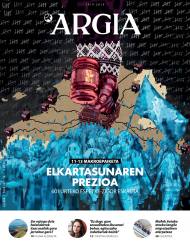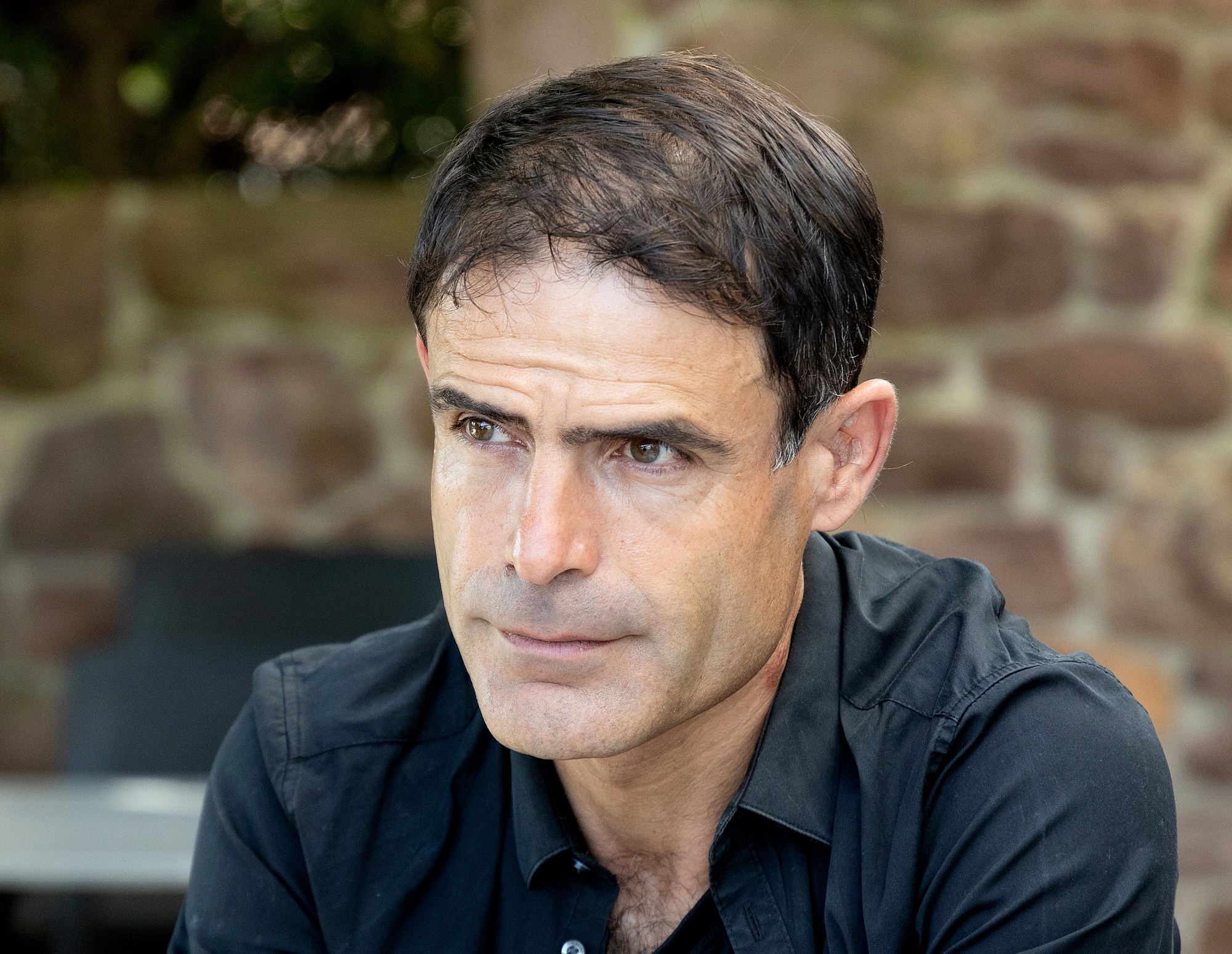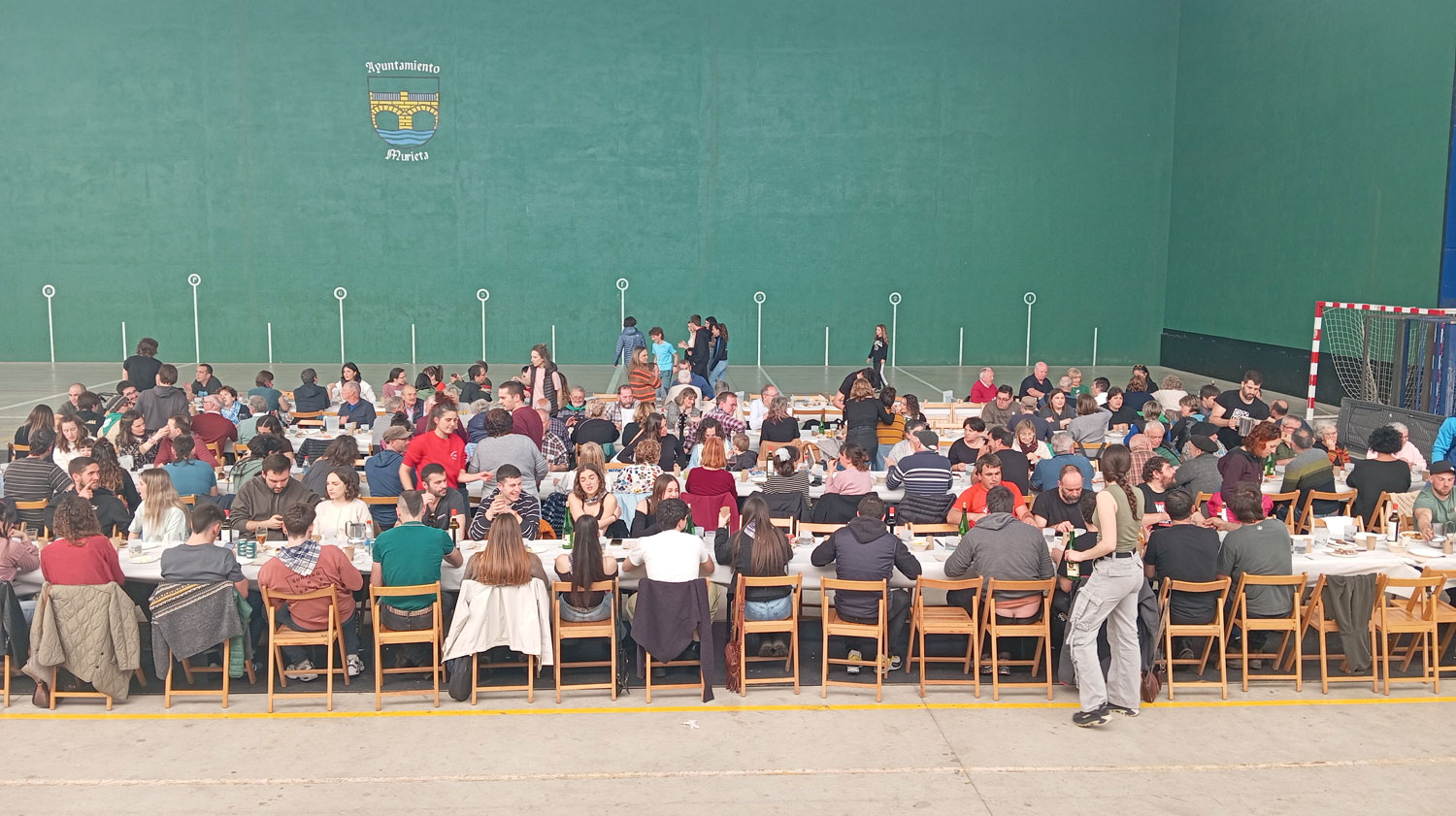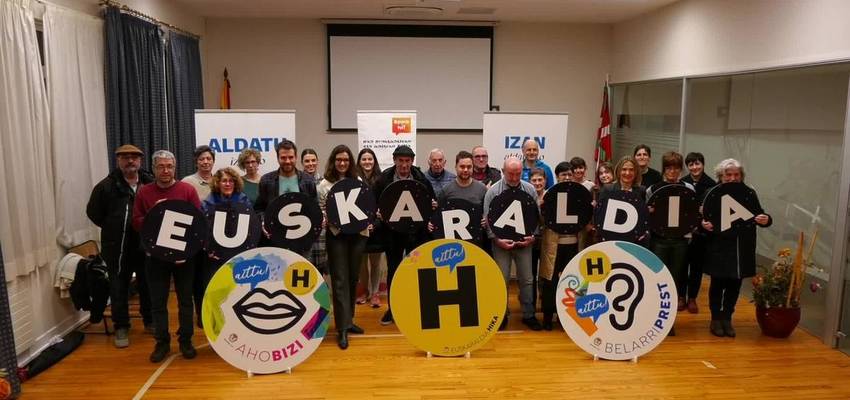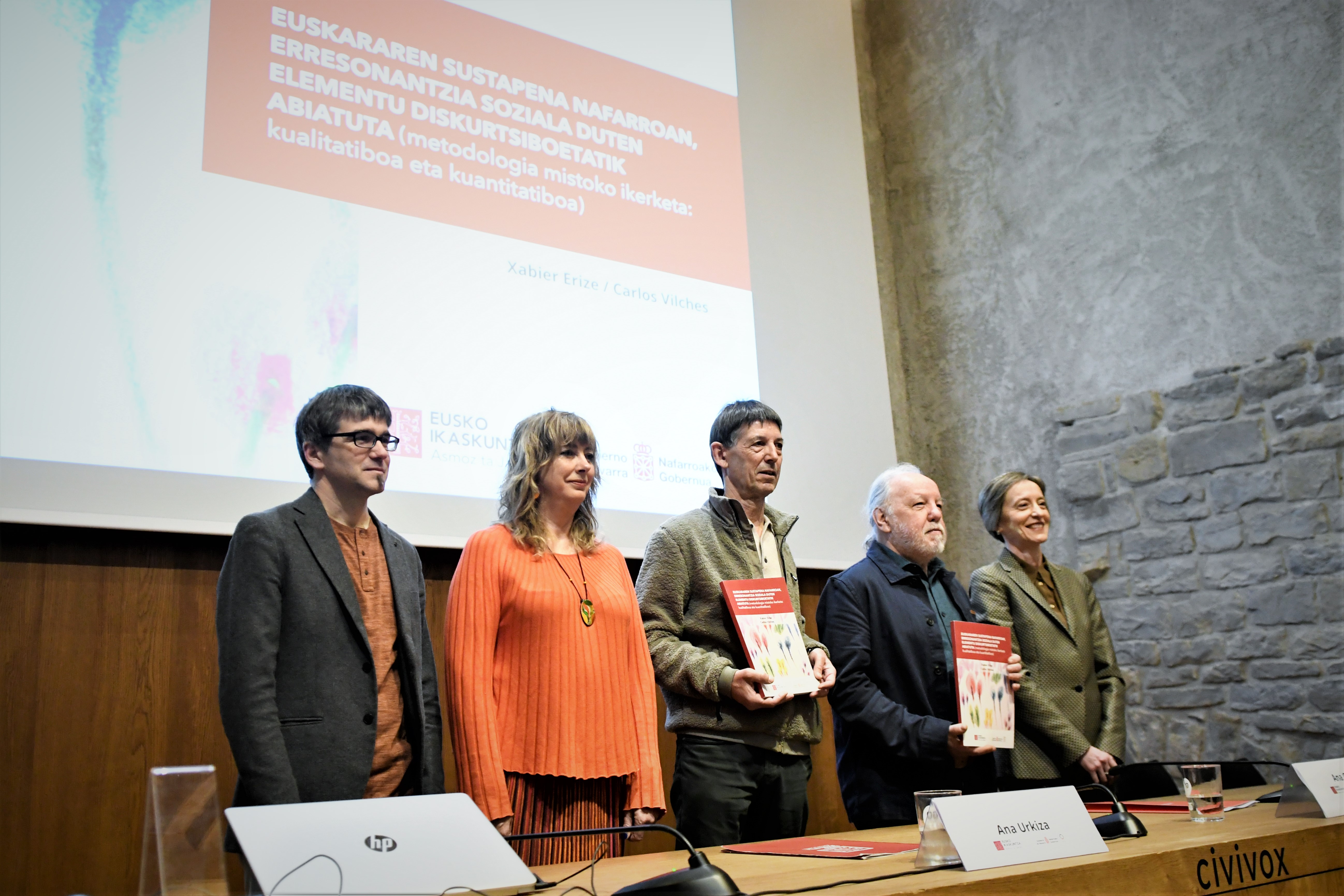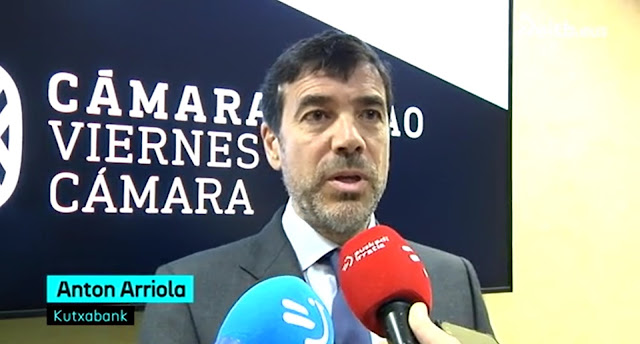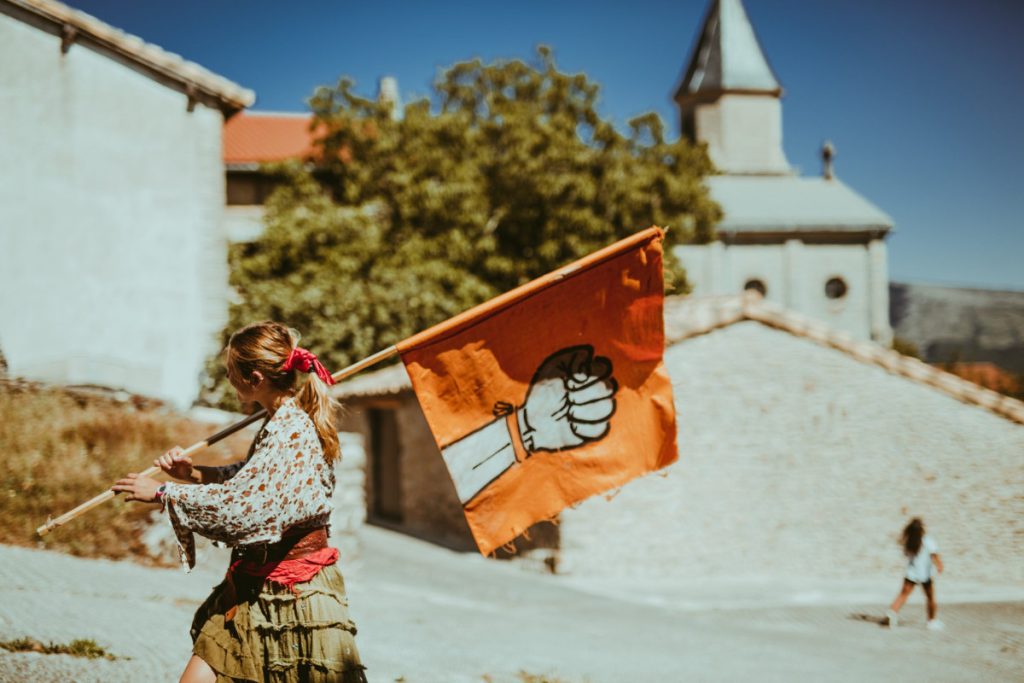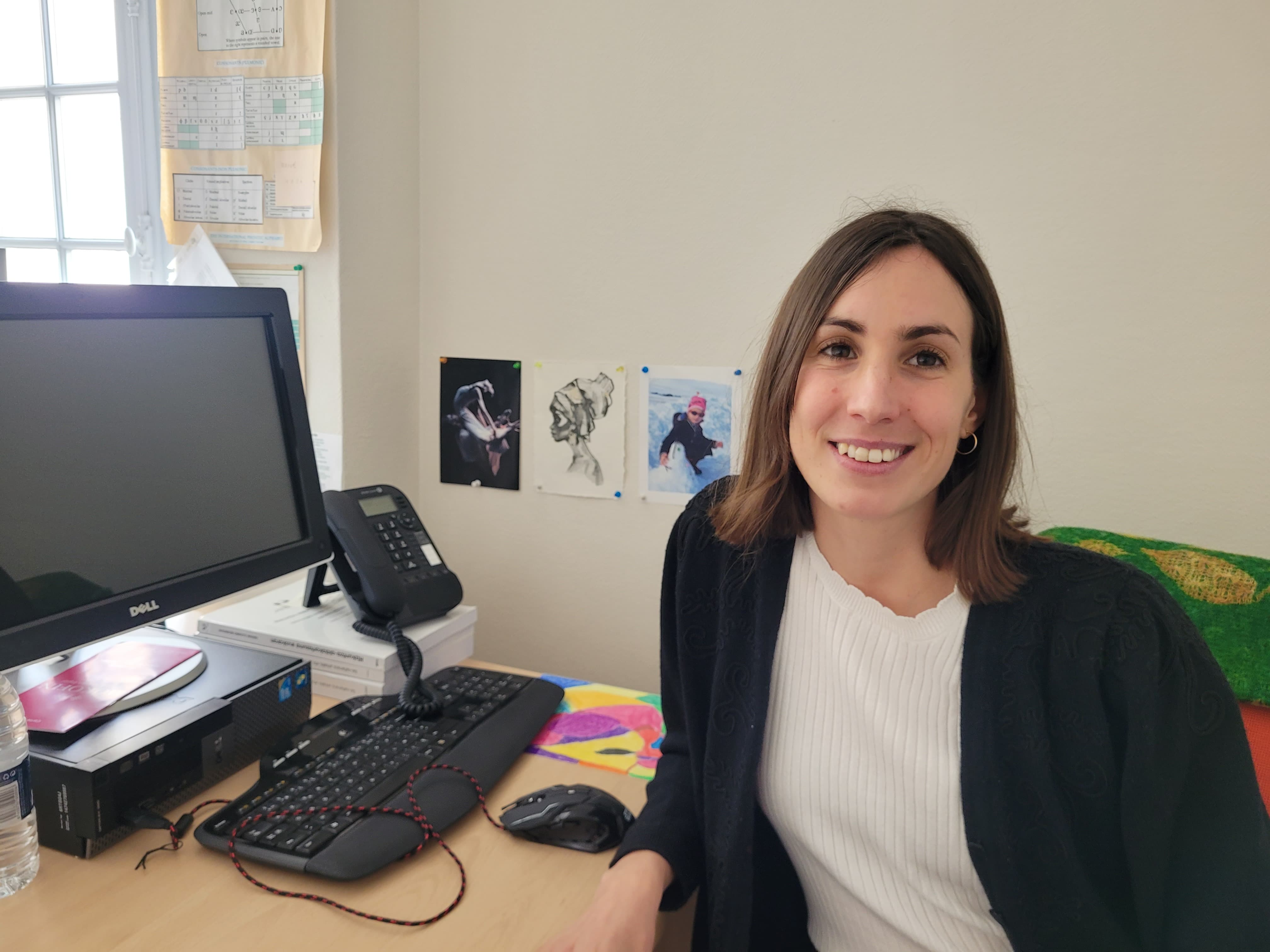The Basque Country lives in the Trebiñu Cider
- Markina-Amozarrain's relatives work in Basque at home and at work. They welcome many Basques in the barge shop, which is their trade. They're in Treviño and they're trying to make Euskera the first line. They have also won the Lazarraga Prize and received it with simplicity: “There will be people doing much more for the use of the Basque Country than we do.”
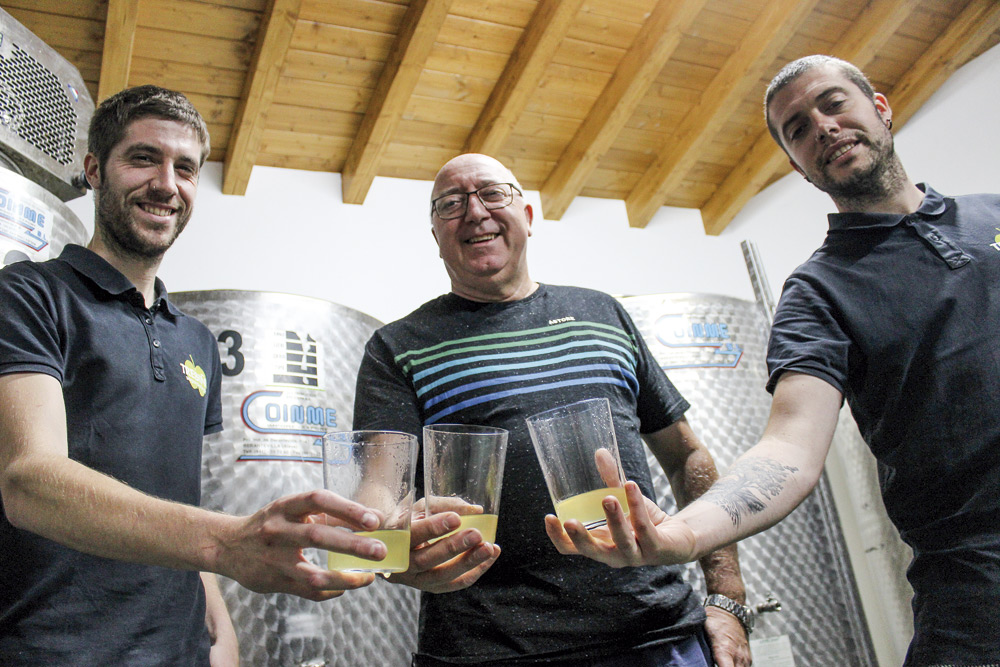
It's called Treviño County, with 260 square kilometers, and 1,460 people spread over 40 small localities: Agilu, Alda, Añastro, Araiko, Arana, Argote, Armentia, Arrieta, Askartza… In fact, the Trebiñu steelworks are our goal. We are welcomed by Koldo Markínez (Askartza, 1958), born there, in the land of the Basque Country which is of administration in Burgos but which is in the heart of Álava: “Errotalde, Torreondo, Rititurri, Rutiaran, Uranzo, Turraran, Portaleta, Garaia, Sarria… are some of the names of the places here. Here the toponymy is from the Basque Country”. In Álava, Treviño wanted to be part of the Alavese territory, as the locals have repeatedly stated. On the other hand, in Burgos, Treviño, and in Askartza, in the La Barrendegi district, the Trebiñu Sidrería, has been awarded the Lazarraga Prize of the Bai Euskarari Association.
It is 30 years since Koldo Markinez started to change the apples in the growing fields of the area. For his part, he has been working for twelve years with his two children in the blackyard, with the support of his wife. After studying agricultural engineering, Markínez knew what he was doing. However, in Askartza, the apple had many drawbacks, as the height is 650 meters. “As a technician, I thought about that question, what kind of apple we would have at this point – but we have seen that the apple here is of good quality – and what kind of cider we would do it, and on that we have also noticed that we make a good cider.” Despite everything, the concern is that Askartza, at 650 meters high, has been left out. Cold and ice. “The biggest problem is spring ice. Today, however, these difficulties are solved through technique”. They have about 2,500 apples, “and we’re willing to plant more,” they say, all cider, including apple juice.
The variety of Asturias (Spanish state) and that of Gipuzkoa have been modified in Askartza, to which the Asturias variety has been better adapted, according to Markínez. “In Gipuzkoa, for example, most apples are by the sea. In Asturias, not only by the sea, but also by the mountain”. And without a doubt, the variety of the mountainous area of the area comes very well to Askartza, in Treviño County.
Koldo Markinez: "In the sink, people do things that aren't done in a regular accommodation: they sing, they get up, they drink from the txotx, they talk to their neighbor. Some come with the trikitixa, others start singing… We also have singers, people ask and sing.”
Mojones
The son of Koldo, Jon Markinez Amozarrain (Vitoria-Gasteiz, 1993), received the Lazarraga Prize with his older brother, Julen (Vitoria-Gasteiz, 1988). He himself tends to account for the shearing. “Our parents started the project at my father’s home. Now, in the dining room, there was a stable. At first there were only four tables in the dining room, we were able to feed 40 people. That was enough. Everything was more precarious than now.” The cider was well received and the influx was increasing. “And the people were unable to come, because there was no room. Then we had to expand the restaurant.” Now it's 120 people who come into the blackboard. “The kitchen is also bigger now. Initially it had six square meters and now it has 35. The vats are also more and better distributed,” said the cook Julen.
They are Hernani, Usurbil, Astigarraga and Sagardotegia. There is the custom, the tradition, the culture… And Jon: “Yes, that’s where the culture is bigger, but here too people have started to learn. Before we came to our quincy, for example, many had never seen a quincy. Say the barrels are there, get up and pick them up, and some: And can't you put the cider in the jar? Don’t you have it in the bottle?’ they asked. Julen uses his younger brother's authority: “People have learned to drink from txotx.” Now it's up to the father. “The first question we asked ourselves was: Will our customers eat it standing?” They decided to play according to the custom of the country and chose to eat seated. “But we put the question in the head,” says Koldo Markínez.

from Vitoria-Gasteiz
The habit of going to the seismic once a year is quite widespread on the margins. Askartza, on the other hand, plays more than once a year, as Treviño is twenty minutes from Vitoria. “Going to Gipuzkoa, taking the car or bus, eating or dining and coming back, can’t be done every weekend. And here, as we are 20 minutes from Vitoria-Gasteiz, there are some that come once a month,” said Jon Markínez. And Koldo: “People also come from Vitoria-Gasteiz on the mountain, two hours away.” After the tour, the customer refreshes and eats and then takes the bus and goes home.
The menu is always the same on the blackboard. In Askartza, despite the small Sidrera tradition that people have, the restaurant wants the menu of always. “That’s what people want, the chop! We also offer another menu after the season, but people do not doubt: ‘No, no, I want the sidrería menu: txuleta!’ That’s right,” the father of the house tells us.
The sidrería, for its part, offers the visitor an unusual atmosphere, as Julen says: “Sidrería is a different place, people do here what they don’t do in a regular accommodation: sing, getting up, drinking from the txotx, talking to what is next to them… Sidrería offers a special atmosphere. It is obvious. Some come with the trikitixa, others start singing… We also have singers, people ask for it and sing.” There they mix together. Twenty minutes from Vitoria-Gasteiz, and closer to Miranda de Ebro. “A lot of people come over there. It's a different world. As soon as we walk through the door, those of Miranda stand out.” Another way, apparently, as Jon warned. Julen says, “The environment of the shearing makes them graceful,” and Koldo has been able to touch the nail in his head: “It’s exotic to them. Do we have to get up to take the cider?’, or ask them about the menu and us: ‘No, here we only have a menu, the menu of sidrería, this is sidrería’. However, the years have passed and people have learned, they have realized the culture of the blacksmith.”
Bai Euskarari, Lazarraga Prize
Members of the Markinez Amozarrain family are Basque. And there is talk in Basque, both they and many of the clients, according to Jon. “Yes, there is a lot of Basque listening here. More than we think.” They're also trying to create that environment. Dinners of bertsos have been made, groups of mintzalagun have been received, students of the Euskaltegis of the two Euskaltegis – including those of Miranda – the song can also be sung at any time of the sidreria. Hence the Lazarraga Prize of the Bai Euskarari Association. “We had a surprise. We had gone the other day to see the award ceremony and last November we went to see it. ‘There will be people who do much more for the use of the Basque than we did,’ we thought. And then, when they said our name, it was a surprise,” explains Jon Markínez: “Thinking about it, we are more important to the Basques than we think, given that we are in Treviño.” They're better helpers than they think for Euskera, because they're also a breathing space. The children bring home Euskera, while the father has learned it in adulthood. “I studied twenty-five years old, in Pamplona, when I was a student.” Along the way, this agronomist engineer met AEK, IKA and various media.
Treviño. Askartza. Álava. Burgos. In Euskera in the local cider, but outside the designation of origin of the cider of the Basque Country, cider and autochthonous apple juice. Because we are in Treviño! We have apples, apples, cider -- few do the entire circle. But as for the administration, we are not in the Basque Country! In the heart of Álava and outside Euskadi!” This is an issue that politicians have not solved so far.
Before doing the txotx, Koldo Markínez gives us a final thought. It refers, of course, to cider: “We are making traditional cider in Euskal Herria. There is no cider for the future. Traditional cider, for a certain form of people, cider for the Sidrera culture, cider forever. We're conservative at that. They talk to people, even with blacksmiths, and that's what they defend, the usual thing, 'This is the best,' they say. But there are a lot of people who want another cider, which will be easier to drink. We are working on this, on the elaboration of a special cider, which will only be the future. The future is going to involve opening the cider and cider to all, in my opinion, making cider for all, who will drink in the United States, Argentina, Russia… On that we are working, in the elaboration of a new cider for the whole community”, said Koldo Markínez before giving us a drink of that special cider. The txotx.
Sarriguren, Tafalla, Noain, Buztintxuri eta Gares herrietako D-PAI ereduko ikastetxeetako familiak kalera aterako dira Hezkuntza Departamentuak foru lege bidez ingeleseko orduak handitu nahi dituela salatzera. Euskarazko murgiltze ereduaren kontrako erabakia dela iruditzen zaie... [+]
Aberri Eguna elkarrekin ospatzeko xedez sortu zen Euskal Herria Batera plataforma. Aurten, ikusgarri bat eskainiko dute apirilaren 11n, Manex Fuchs antzerkilariaren, Lorea Agirre idazlearen eta Martxel Rodriguez dantzariaren eskutik.
Gozamen aparta bezain deskribatzeko zaila dakar, norbaiten hitzak irakurri edo entzun ostean, zera pentsatzeak: “Horixe zen neu aurreko hartan azaltzen saiatu nintzena!”. Idazlea eta itzultzailea da María Reimóndez, eta galegoz aritzen da, hizkuntza... [+]
From linguistics or glotophobia and, of course, hatred against Basque, we have often seen our Basque become the dandruff of all sticks. Last of all, the president of Kutxabank, Anton Arriola, has been shaking our language and giving us galantas.The President of Kutxabank,
... [+]
Don't make a fuss, don't confront, don't victimize... and obey. As oppressed subjects, in this case as Basques, we talk, how many times have we had to listen to them? Ironically, two years ago, at the Euskalale Independentiston Meeting, Esne Arzallus said: "We have arrived here,... [+]
Euskal hizkuntzalaritza esperimentaleko katedra berria estreinatu dute Baionako fakultatean.









